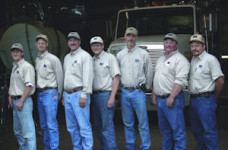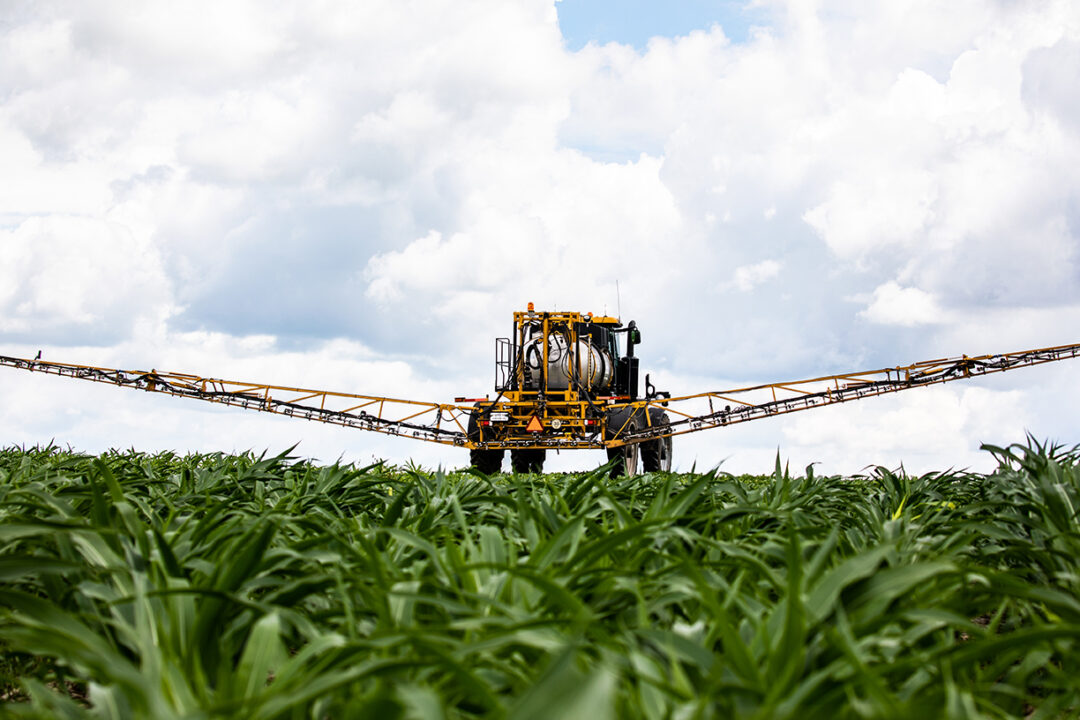Changing For The Environment

If you work at any facility with the name “McGregor” on it, there is a lot of pressure to step up when it comes to stewardship, says Tom Zornes, office manager for the company’s Oakesdale, WA, outlet. Indeed, McGregor locations have captured numerous Environmental Respect Awards at the state, regional, and national levels in the past decade. In fact, the past two national award winners have both been McGregor facilities.
But until recently, says Zornes, McGregor Oakesdale wasn’t among the honorees. “This location dates back to the mid-1960s, so there were a lot of upgrades I thought we needed to make before we were ready to try for an Environmental Respect Award,” he says.
So, with the help of the facility’s employees, McGregor Oakesdale began changing the way it conducts business to reflect a more environmentally conscious stance. The outlet discontinued the practice of rinsing off equipment in a wastewater lagoon on-site and started rinsing them before they left grower-customer fields. The company switched from carrying smaller crop protection containers and moved to bulk chemical ones, cutting down on the amount of waste the outlet generated per year. Finally, McGregor Oakesdale enhanced its security measures by installing surveillance cameras and valve locks across its grounds.
Gaining Respect
In 2006, these environmental improvements were deemed good enough for Zornes to enter the outlet in the Environmental Respect Awards competition. The facility won a state award.
Encouraged by this success, Zornes once again entered the 2007 contest. This time, his outlet’s efforts were rewarded with a regional award. “I couldn’t be more proud of our facility in winning a regional Environmental Respect Award,” says Jeff Black, area manager for the outlet. “This was a long time in the making, but it helps prove that our facility is carrying through with the environmental standards put forth by our parent company.”
Sustaining The Land
According to Zornes, one of the key tenets at any McGregor outlet is sustainability. The company motto — Every Drop Counts — is proudly displayed for any visitor to the facility to see upon entering. “That’s the cornerstone of everything we try to do here,” he adds.
Take product containment, for instance. “Our liquid fertilizer containment was one of the first for our company to meet the new standards and as such became a model for our other branches to follow and improve upon,” says Zornes. “It was constructed with 125% capacity in mind, which has given us flexibility when installing new tanks. We are phasing out the old mild steel tanks and replacing them with stainless steel, cone bottom tanks for ease of clean out, less water usage, and speeding up the cleaning operation.”
To protect these tanks from intruders, McGregor Oakesdale has installed security cameras to monitor products being transferred from anhydrous ammonia storage, bulk pesticide tanks, and bulk fertilizer containment. “These cameras are monitored from the branch office,” says Zornes.
For an added layer of protection, McGregor Oakesdale has also changed the way it processes grower-customer orders, switching from an informal handwritten model to printing detailed computer records. “At times, this has slowed down the ability of our growers to get product from us, but it has increased our ability to track all crop input sales immeasurably, so that’s a trade-off we were willing to make,” says Zornes.
Outreach Efforts Work
Within the community, McGregor Oakesdale has spent years reaching out. Besides counting a few volunteer firemen among its employees, the company helped the town build a new firehouse a few years ago.
Moving forward, McGregor Oakesdale plans to continue making environmental upgrades to its location. Next up, says Black, the outlet will probably rebuild its main containment area, which is beginning to show some signs of concrete wear. “We can probably accomplish this during our slow season and be in a much better position to maintain our company’s legacy of stewardship,” says Black.
Changes such as this, adds Zornes, will only help make the entire ag retail community stronger. “We all know agriculture is changing,” he says. “Farms are getting bigger and needing fewer people to operate them, equipment is getting bigger and more expensive to own and operate, and the cost of operation keeps going up, but the return to the grower is stagnant at best. So what are we going to do? We can either join the doom and gloom crowd, roll over and die, or we can come out fighting. We prefer a good fight.”






